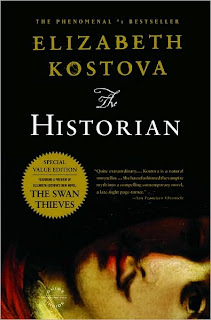Sotomayor's Advocacy Skills Apparent Early
The reader gets a glimpse into the strong-minded woman she will mature into when at a tender age she is diagnosed with Type I Diabetes, a serious life-long illness. Rather than look to her parents for strength and support, she advocates for herself and assumes responsibility for monitoring her condition and insulin injections. She does this knowing that it will relieve tension between her parents in the home.
"Does it seem strange that a child should be so conscious of the workings of her own mind?"
I read about her family's dynamics: her somewhat strained relationship with her mother, conflicted relationship with her father, and authoritative relationship with her younger brother. She was in a sense, Puerto Rican in the home and with extended family members, as they came together as a family often to eat, sing and dance. She'd soon learn, however, at Princeton and Yale Law School that as she's part of a minuscule minority of students, who are mostly White, she learns that being Puerto Rican comes in varying degrees of authenticity. It's not until she becomes active within Latino groups at both schools that she questions herself.
Reading Sotomayor's writing and following her logic as she addresses the challenges facing this country's English Language Learners (ELLs), the masses of college readiness resources and tools available to the "haves" and scarcity of the same for students who have access to little to nothing, gives me great hope to know that a person of her caliber represents the people. Her worldview is not one of privilege. She understands the challenges facing underserved youth and immigrants in this country.
Having said that, though, the lens through which she views social conditions serves as just that -- a lens -- that informs her decisions, not one that directs them.
"I would warn any minority student today against the temptations of self-segregation: take support and comfort from your own group as you can, but don't hide within it."
 Four IMPORTANT Lessons From MY BELOVED WORLD
Four IMPORTANT Lessons From MY BELOVED WORLD
- Do not self-segregate in communities that remove themselves from the mainstream. Power is diluted by doing so.
- Punch the self-esteem monster in the face every time it tries to block you from going after what's in your heart and mind. It shocked me to learn that Sotomayor has questioned her intelligence and "belongingness" so many times in her career. Sotomayor. The first Latina Chief Justice of the Supreme Court. Even she's plagued by mind monsters.
- "Bigotry is not a value."
- View issues from all perspectives, not just the one you champion. Right is usually somewhere in the middle.
I have nothing but the greatest respect for writers who speak their truth. Sonia Sotomayor is an inspiration to young women everywhere. We might have all benefited from watching a little Perry Mason in our youth.






















